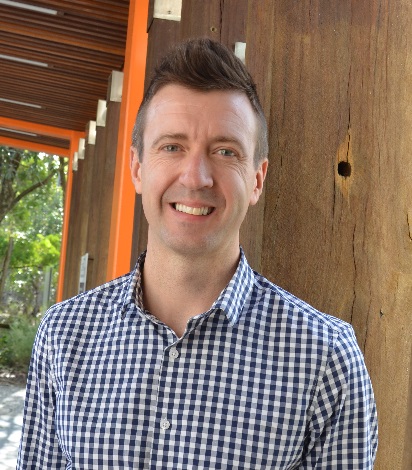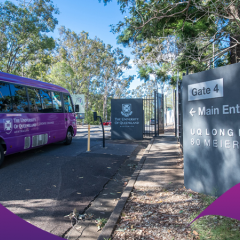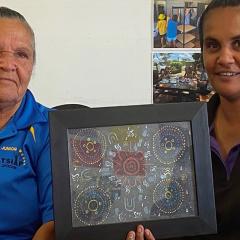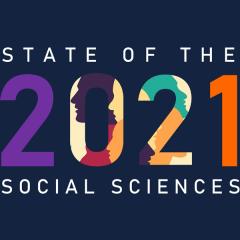
With a strong and established research track record in population health inequalities and policy evaluation, Dr Mark Robinson joined ISSR in April 2020 to develop and further strengthen the Institute’s evaluation services and leadership. Arriving from Scotland at the beginning of the initial COVID-19 lockdowns in Australia, Mark and his family have effortlessly adjusted to life down under.
Mark joined Scotland’s national health improvement agency NHS Health Scotland as a Project Officer in 2009 and undertook his PhD on a part-time basis while in a full-time job. Funded by the UK Ministry of Defence, Mark’s PhD investigated the epidemiology of health behaviours and training injuries among British Army infantry recruits, and was awarded from the University of Bath in 2015. Upon award of his PhD, Mark was promoted to Public Health Intelligence Principal at NHS Health Scotland and he remained in that position until joining ISSR. Mark retains a strong connection to his work and colleagues in Scotland through an Honorary Senior Research Fellow position at the University of Glasgow.
Mark is passionate about understanding and communicating the fundamental causes of population health inequalities and their potential solutions.
During his time with NHS Health Scotland, Mark led the Scottish Public Health Observatory team’s input into the Monitoring and Evaluating Scotland’s Alcohol Strategy (MESAS) work programme and co-managed the high profile and multi-component evaluation of Minimum Unit Pricing. Through these large programmes, Mark designed, managed, and led a range of projects aimed at providing crucial intelligence at various stages of the policy process (from epidemiological studies to understand the scale of the problem during policy formulation, to natural experimental studies to estimate effectiveness during policy evaluation).
Based on the success of this work, Mark published a number of impactful outputs that have strongly influenced the policy and public discourse on alcohol control in Scotland and beyond. His research was cited in the UK Supreme Court Judgment that Minimum Unit Pricing was a legal and proportionate response to Scotland’s problematic relationship with alcohol.
Mark was a member of a Ministerial Working Group on alcohol harms and remains a member of the Evaluation Advisory Group for the suite of evaluation studies examining the policy’s impact on consumption and health harms.
In addition, Mark led the strategic development and management of the Informing Interventions to reduce health Inequalities (Triple I) project. This quantitative research project used scenario modelling, a form of ex-ante evaluation, to provide national and local decision makers with practical tools and interpreted research findings to make informed decisions about investing in interventions to reduce health inequalities.
Having worked at the interface between evidence and policy and practice in Scotland, Mark brings a wealth of knowledge and experience to his role at ISSR, and he has already made significant contributions and impact in the short time he has been in the Institute.
Since joining as Senior Evaluation Manager, Mark has been involved in the procurement and delivery of 11 contract research projects, seven of which have included a substantive leadership role. Mark’s exceptional evaluation expertise has enabled him to work seamlessly across the ISSR impact themes, which has resulted in four monitoring and evaluation frameworks on behalf of government and non-government partners in areas outside of health inequality. An example of which was the high-profile Student Equity in Higher Education Evaluation Framework (SEHEEF), completed on behalf of the Commonwealth Government Department of Education, Skills and Employment.
Mark is a key contributor and research leader in the research partnership that ISSR has established with Health and Wellbeing Queensland, where he has led the co-development of an organisation-wide Monitoring, Evaluation and Learning (MEL) Framework. The evaluation expertise and leadership demonstrated throughout this work helped secure a large multi-year contract to deliver the strategic evaluation of a suite of six preventive health programs over the next three years, a flagship project that Mark leads.
“There is an urgent need for more evidence-informed advocacy and action on population health inequalities in Queensland (and Australia) and I’m keen to work with others to meet this need.” Dr Mark Robinson.
Mark transitioned to a Senior Research Fellow in October 2021 and will continue to lead applied, policy- and practice-relevant research and evaluation projects, while carving out a program of research in the area of health inequalities.



